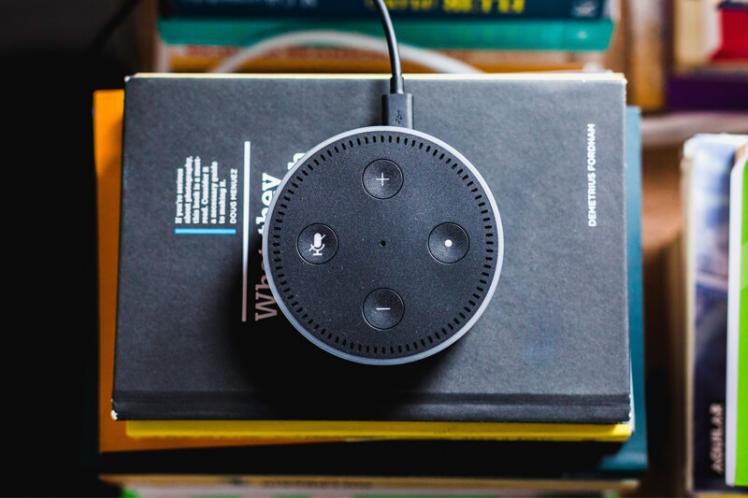Is Empathy the Secret to Success for the New Amazon Echo?

Earlier this year, Amazon in the US asked my consultancy, ModelPeople Inc., to use our Strategic Empathy® Process to explore the hidden secret to success for its hit device, the Echo Virtual Assistant, powered by Artificial-intelligence (AI). Amazon just confirmed that Echo is now coming to the UK and Europe. The clever home hub can turn on the lights, check the weather forecast, order a pizza or an Uber, and even read the kids a bedtime story! Virtual Assistants are not new, as anyone who uses Siri on their iPhone will tell you, and there are other home hub devices out there, so what’s the secret of the Echo’s huge success with US consumers?
ModelPeople’s Strategic Empathy® Process is a systematic process of nurturing empathy-based learning and insight about consumers among the stakeholders in an organization, and then activating insights into marketing strategy and actions. The first step in the Strategic Empathy® Process is undertaking immersive, experiential consumer research, to understand - in this case - why on earth owners love their Echos so much. The Insights team at Amazon asked ModelPeople to deploy a specialized research technique called Deep Visualization. First developed by Richard Maddock (1996) and Charles Kenney, the technique uncovers the deep-seated emotional memories and non-conscious emotions associated with brand experiences.
Academic research (for example Heuer and Reisberg, 1990; LeDoux, 1993) shows that experiences which trigger positive emotions are remembered better and for longer (which is why brands strive to create positive associations and experiences in product design and marketing communications). However, consumers may not be able to consciously articulate emotional memories. The Deep Visualization technique helps consumers articulate deep-seated emotional memories and associations with brand experiences, using relaxation, visualization and repetitive probing. In our research, ModelPeople asked consumers to close their eyes and go into a state of deep relaxation. This enabled them to recall and describe 'in the moment’ memorable experiences with their Echo and their thoughts and feelings. What is it about the product design that triggers positive emotional memories? How do Amazon brand perceptions influence that? Immersive research like this gives marketing and product teams hands-on, deep insight – empathy – into what their consumers love about their products, and where there might be improvements needed. And it’s fast, which is required by companies like Amazon, operating in a highly competitive technology space in today’s VUCA (Volatile, Uncertain, Complex, Ambiguous) world.
The day after the research, the stakeholder team participated in an Activation Session (Activation is step two of the Strategic Empathy® Process) to activate empathy into strategy. While the research insights are obviously confidential, analysts applaud how cleverly the Amazon team has developed the AI in the Echo, known simply as Alexa by her devoted owners (full disclosure: of which I’m now one!). Alexa wins points for having a more empathetic 'personality’ than sarcastic Siri. Blue lights show 'she' is listening and she’ll ask you to confirm a request if she hasn’t understood. She’ll even show appreciation if you thank her! And Alexa is adding new skills every week, so she’s becoming more and more helpful. Chicago-based, I 'ask Alexa' to play the BBC News and check the weather every day and, yes, she understands my so-called 'British accent', something Amazon say that they have had to work on before launching the Echo in Europe. Will 'Alexa' be a hit with UK consumers? If she learns to switch the kettle on for a cuppa, then I predict she just might. Based on Strategic Empathy® research of course!
References: Heuer, F and Reisberg, D (1990) Vivid memories of emotional events; the accuracy of remembered minutiae, Memory and Cognition, 18, pp 496-506 LeDoux, J (1993) Emotional memory systems in the brain, Behavioral Brain Research, 58 Maddock, R and Fulton, R (1996) Marketing to the mind/Right Brain Strategies for Advertising and Marketing, Quorum, Westport, CT
About the author: Claire Brooks is President of ModelPeople Inc., a global brand insights & strategy consultancy to global Fortune 500 corporations and SMEs. Claire has 30 years' experience in brand management, brand planning and deep insights research with Fortune 500 companies and advertising agencies in both Europe and the US, and was also a graduate professor, designing and teaching marketing MBA programs. She was brought up in Africa, India and the UK, and holds an MA in social sciences from Cambridge University and an MBA from Durham University Business School.
Marketing with Strategic Empathy by Claire Brooks is available to purchase from 3rd August 2016. Order your copy now and save 20% with discount code BMKMSE20




